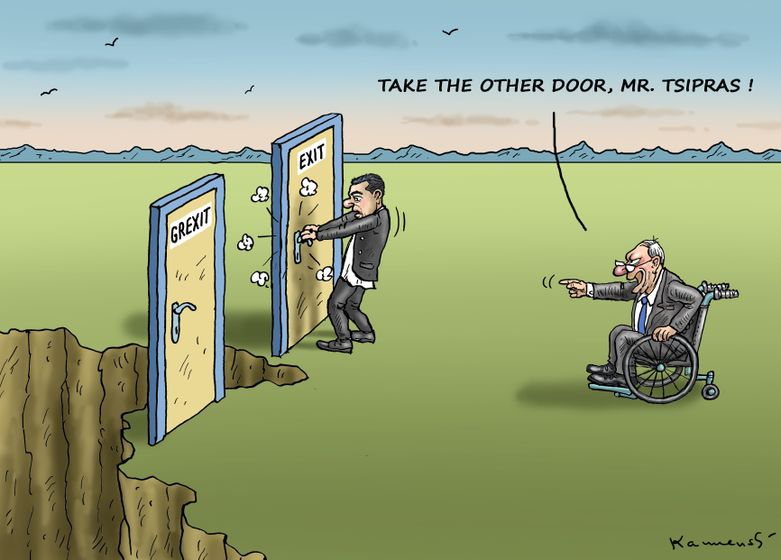Peter SIegel writes: Unless Greece and its international creditors agree a deal soon to close out the country’s €172bn bailout, and then quickly agree another rescue, Athens is likely to run out of money and default on its debts. That would push it perilously close to crashing out of the eurozone.
Will Athens bow to pressure and accept tough new economic reforms to release the remaining €7.2bn in the programme and refill its dwindling coffers? Or will Greece’s increasingly divided creditors succumb to fears over “Grexit” and give Athens a pass?
All 19 eurozone finance ministers are due to gather in Brussels next week for their monthly eurogroup meeting, where bailout deals are normally brokered. The next day, Greece is due to make a €750m
Greece appears to have once again scraped together enough cash to stave off the day of reckoning.
Athens hopes the European Central Bank will be persuaded to increase its cap on the amount of short-term debt the government could issue — a key relief valve that would have eased, at least temporarily, the government’s cash crunch. But no such relief is now expected. The current bailout ends in June and officials are starting to examine the calendar to figure out the drop-dead moment a deal must be reached to have enough time to clear all the prerequisites for a payment to reach Athens by June 30.
Most officials believe the last week of May would be the best-case scenario, leaving a full month for eurozone parliaments to approve the deal and for Greece to pass and implement new laws.
Can a deal be reached by then? The differences over the main stumbling points — pension cuts, labour market liberalisation, value added tax increases — remain just as wide as they were when the stand-off began three months ago.
The dark cloud looming over the current negotiations is that even if a deal is reached, the most difficult task still lies ahead: agreeing yet another bailout.
The €7.2bn remaining in the current rescue programme is intended to refill Athens’ empty coffers, pay off arrears, and ensure all debts due through June are met.
Unless the eurozone wants to play with the same fire that nearly caused a full-scale Greek bank run in February — the last time Greece was nearly left without the cover of an EU bailout — a new rescue must also be agreed by the end of June. Two deals in seven weeks. The make-or-break moment may be here.

